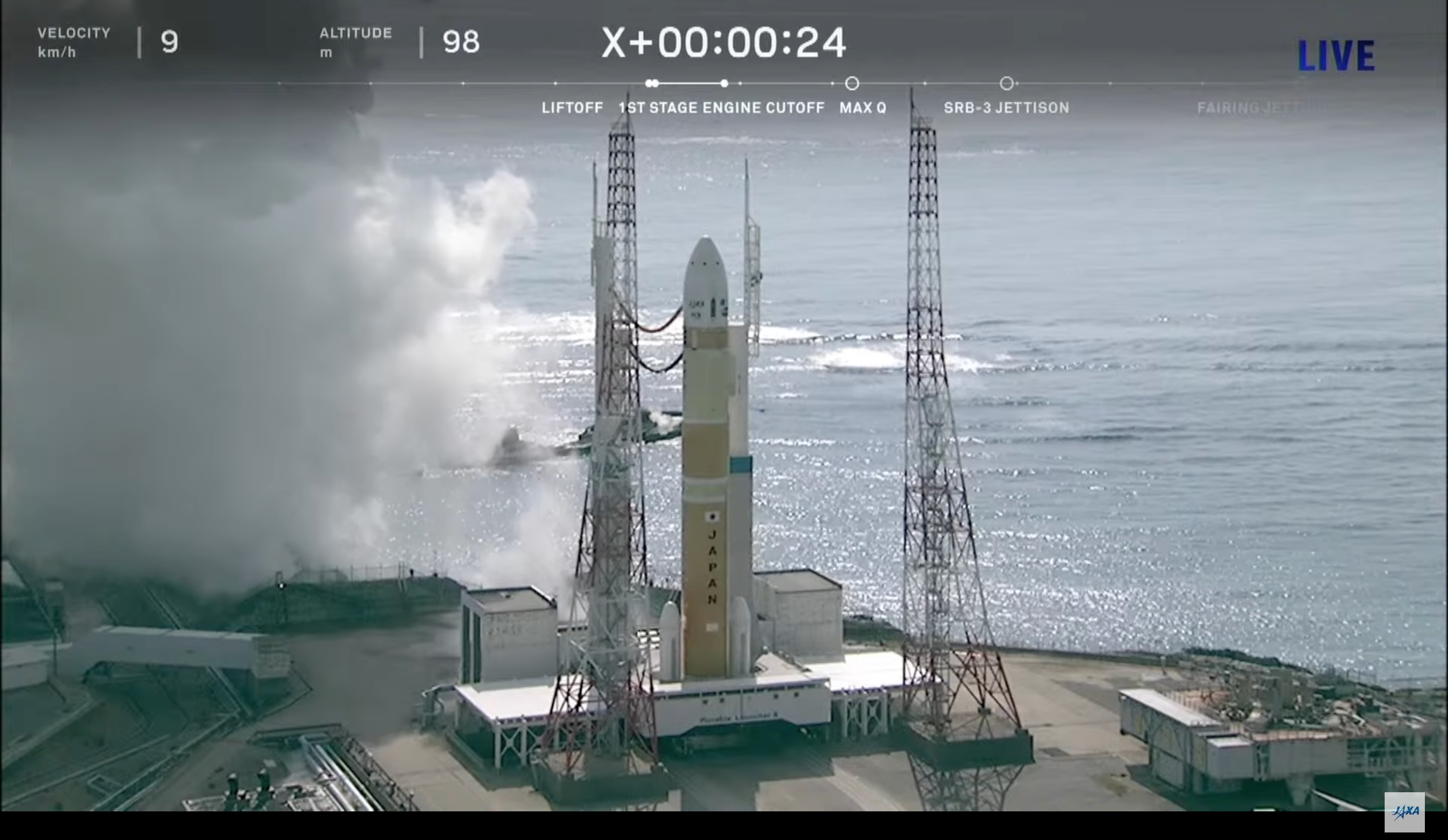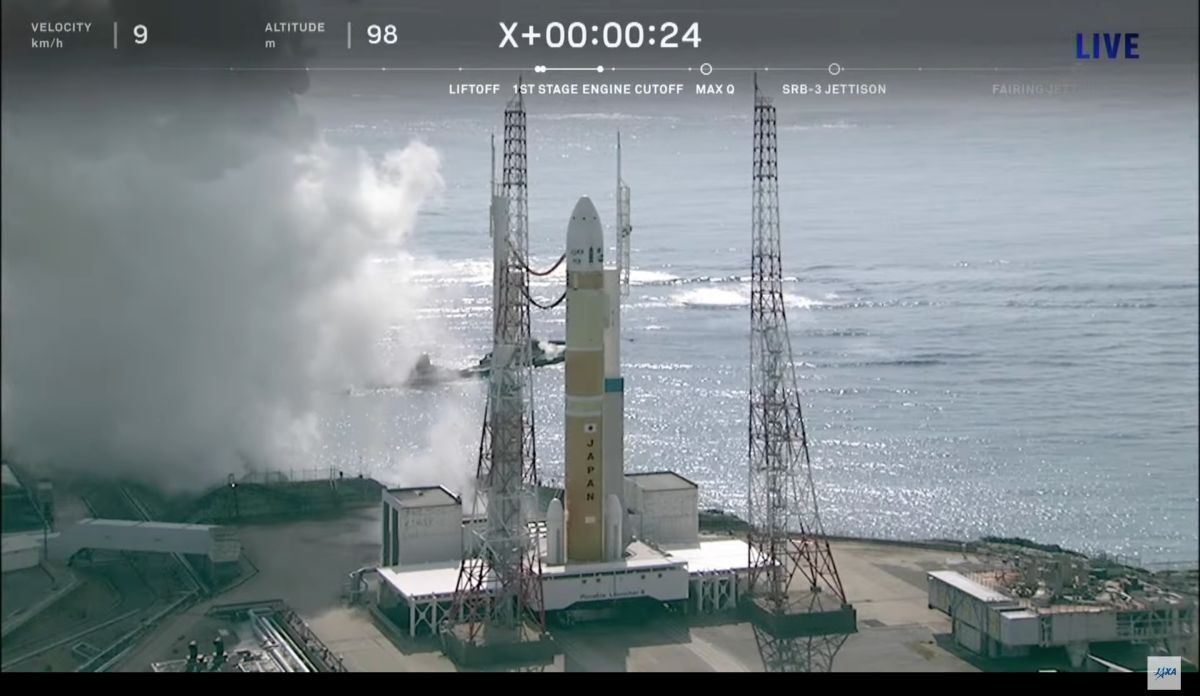
Japan’s powerful new rocket will have to wait a bit longer to get off the ground.
The H3 rocket aborted its first-ever launch attempt on Thursday evening (Feb. 16), a test flight from Japan’s Tanegashima Space Center that was supposed to send an Earth-observing satellite to orbit.
The H3 made it all the way through the countdown to T-0, which occurred as planned at 8:37 p.m. EST (0137 GMT and 10:37 a.m. Japan Standard Time on Feb. 17). The two LE-9 engines that power the vehicle’s core stage ignited, but one of its two solid rocket boosters did not, commentators said during the livestream of the launch, which was provided by the Japan Aerospace Exploration Agency (JAXA).
The rocket remained groundbound and in one piece.
Related: The history of rockets
It was not immediately clear why the booster failed to fire up; more time will be needed to investigate, launch commentators said.
Thursday’s abort adds to the delays in the H3’s journey to orbit. JAXA and its commercial partner, Mitsubishi Heavy Industries, have been developing the rocket for a decade.
JAXA has high hopes for the H3, which is designed to be flexible and cost-effective. The new vehicle will soon replace Japan’s workhorse H-IIA rocket, if all goes according to plan.
The satellite that was supposed to fly today is called the Advanced Land Observing Satellite-3 (ALOS-3 (opens in new tab)), also known as DAICHI-3.
The 3-ton ALOS-3 will be able to resolve features as small as 2.6 feet (0.8 meters) wide on our planet’s surface from its final perch in low Earth orbit, JAXA officials have said. Its observations will have many applications, including disaster monitoring and response.
Thursday’s planned launch was originally targeted for Tuesday (Feb. 14), but bad weather caused a two-day delay.
Japan has launched one orbital mission so far this year: An H-IIA successfully delivered Japan’s IGS Radar 7 surveillance satellite to orbit on Jan. 25.
Mike Wall is the author of “Out There (opens in new tab)” (Grand Central Publishing, 2018; illustrated by Karl Tate), a book about the search for alien life. Follow him on Twitter @michaeldwall (opens in new tab). Follow us on Twitter @Spacedotcom (opens in new tab) or Facebook (opens in new tab).

